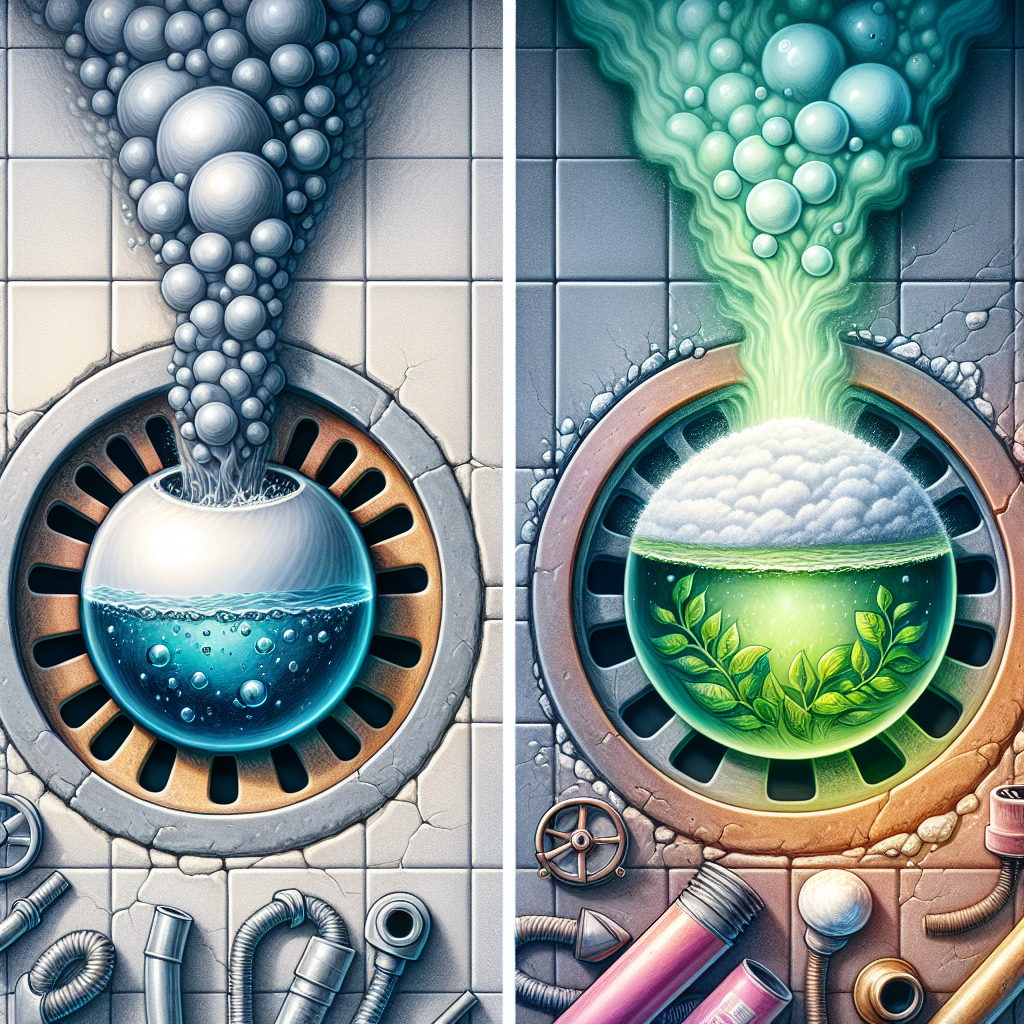Clogged drains can be an exasperating issue for homeowners and business owners alike. When faced with a stubborn blockage, the question arises: Should I use chemical drain cleaners or opt for a natural alternative? This article delves into the pros and cons of each method, helping you make an informed decision for your home or business.
Understanding the Basics of Drain Cleaners
Before we get into the specifics, it’s essential to understand the primary purpose of drain cleaners. Both chemical and natural drain cleaning methods aim to dissolve soap scum, grease, hair, and other debris that can block your plumbing system. However, the approach they take is vastly different.
What Are Chemical Drain Cleaners?
Chemical drain cleaners are commercially available products that typically contain caustic substances, including sodium hydroxide or sulfuric acid. These chemicals work quickly to dissolve clogs and restore flow.
Pros of Chemical Drain Cleaners
- Quick Results: One of the most significant advantages of chemical cleaners is their speed. They often unclog a drain within minutes.
- Effective on Tough Clogs: Chemical solutions are particularly effective on hard-to-remove blockages like grease or hair tangled in pipes.
- Widely Available: These products are easy to find at almost any grocery or home improvement store.
Cons of Chemical Drain Cleaners
- Toxicity: The harsh chemicals can be dangerous, especially if inhaled or ingested. They can cause irritation to the skin and eyes, making them hazardous in households with children or pets.
- Pipe Damage: Over time, repeated use of chemical cleaners can corrode plumbing pipes, especially older ones, leading to expensive repairs.
- Environmental Concerns: Chemical drain cleaners can harm the environment, often ending up in waterways and negatively affecting aquatic life.
Natural Drain Cleaning Methods: A Safer Alternative
Natural drain cleaning methods utilize non-toxic substances, often found right in your kitchen. These methods are not only eco-friendly but are also safer for your plumbing system.
Pros of Natural Drain Cleaners
- Non-Toxic: Natural solutions like baking soda, vinegar, and hot water are safe for both your family and the environment.
- Pipe Friendly: They are gentle on plumbing systems, posing no risk of corrosion or damage to pipes.
- Cost-Effective: Most natural ingredients are inexpensive and commonly found in households, making them a budget-friendly option.
Cons of Natural Drain Cleaners
- Slower Results: While effective, natural methods often require more time to work, sometimes overnight for stubborn clogs.
- Less Powerful: Compared to chemical cleaners, natural methods may not be as effective for severe blockages, especially those caused by solid objects.
- Multiple Steps Required: Often, natural drain cleaning requires a combination of ingredients and a bit of patience, unlike the straightforward application of chemical cleaners.
How to Naturally Clean Your Drains
If you’re interested in trying a natural method, here’s an easy step-by-step guide:
- Boiling Water: Pouring boiling water down the drain can help dislodge minor clogs caused by grease or soap buildup.
- Baking Soda and Vinegar: Start by pouring about 1/2 cup of baking soda down the drain, followed by 1 cup of vinegar. Cover the drain with a stopper to avoid bubbling over. Let it sit for about 30 minutes before chasing it with more boiling water.
- Salt and Baking Soda: A mixture of 1/2 cup of table salt and 1/2 cup of baking soda could also do the trick. Follow the same method as the baking soda and vinegar approach.
Making the Right Choice
When it comes to selecting between chemical and natural drain cleaning methods, the choice ultimately depends on your specific needs.
- For Quick Fixes: If you’re pressed for time and facing an emergency, chemical cleaners may offer immediate relief, but proceed with caution.
- For Long-Term Care: Opting for natural drain cleaning is a healthier and more sustainable choice. It promotes a safer home environment and often contributes to a longer lifespan for your plumbing system.
Conclusion
Both chemical and natural drain cleaning methods have their benefits and drawbacks. By weighing your options carefully, considering the type of clog you’re dealing with, and assessing your priorities—be it time, safety, or environmental impact—you can make the best choice for your home or business.
Remember, regular maintenance is essential for preventing future clogs. Whether you choose chemical or natural methods, keeping your drains clean can save you the hassle and expense down the road. Trust your instincts and, when in doubt, don’t hesitate to call a professional plumber for help!


